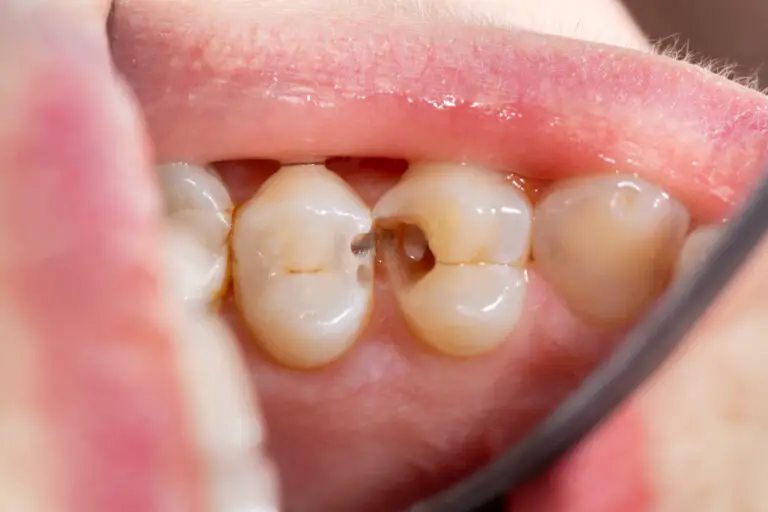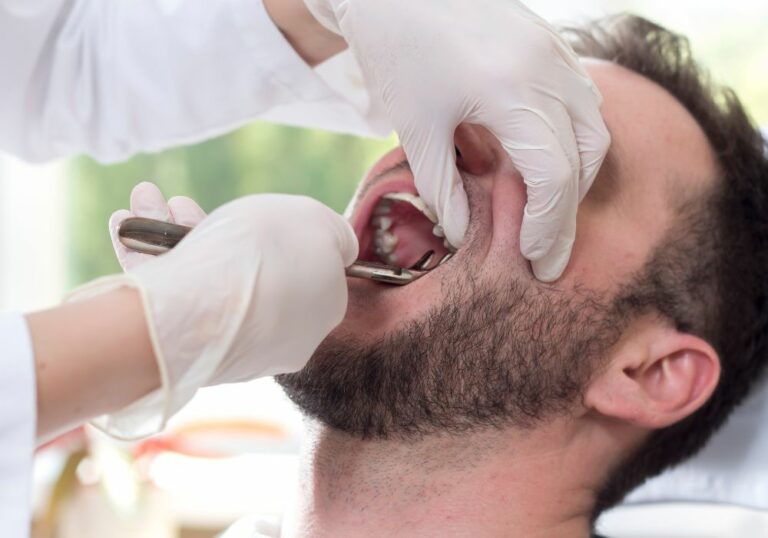Do you experience discomfort or pain when you eat or drink hot, cold, or sweet foods? If so, you may have sensitive teeth. Tooth sensitivity is a common problem that affects millions of people worldwide. It occurs when the enamel on your teeth wears away, exposing the underlying dentin, which contains small tubes that connect to the nerves in your teeth. When these tubes are exposed to hot, cold, or sweet foods, they can trigger pain or discomfort.
Fortunately, there are several natural remedies that can help improve tooth sensitivity. These remedies include using desensitizing toothpaste, avoiding acidic foods and drinks, and practicing good oral hygiene. Additionally, certain home remedies, such as oil pulling, saltwater rinse, and guava leaves, may also provide relief. However, it’s important to note that if your tooth sensitivity is severe or persistent, you should see a dentist for diagnosis and treatment.
Understanding Teeth Sensitivity

If you experience discomfort or pain when consuming hot, cold, sweet, or acidic foods and beverages, you may have sensitive teeth. Teeth sensitivity is a common dental problem that affects millions of people worldwide. In this section, we will discuss the causes and symptoms of teeth sensitivity.
Causes of Teeth Sensitivity
Teeth sensitivity occurs when the enamel on your teeth wears away or when your gums recede, exposing the underlying dentin layer. The dentin layer contains microscopic tubules that lead to the tooth’s nerve center, causing pain or discomfort when exposed to external stimuli. Some common causes of teeth sensitivity include:
- Brushing too hard or using a hard-bristled toothbrush
- Consuming acidic foods and beverages
- Gum recession due to gum disease or aging
- Tooth decay or cavities
- Teeth grinding or clenching
- Cracked or fractured teeth
- Dental procedures such as teeth whitening or gum surgery
Symptoms of Teeth Sensitivity
The most common symptom of teeth sensitivity is pain or discomfort when consuming hot, cold, sweet, or acidic foods and beverages. Other symptoms may include:
- Pain or discomfort when brushing or flossing
- Pain or discomfort when breathing in cold air
- Pain or discomfort when touching the affected tooth or area
- Swollen or bleeding gums
- Bad breath or unpleasant taste in your mouth
If you experience any of these symptoms, it’s essential to see a dentist for diagnosis and treatment. Your dentist may recommend specific treatments or lifestyle changes to alleviate your teeth sensitivity and prevent it from recurring.
Natural Remedies for Teeth Sensitivity
If you’re experiencing teeth sensitivity, there are natural remedies that you can try at home to alleviate the pain and discomfort. Here are some natural remedies that you can consider:
Dietary Changes
Your diet can have a significant impact on your teeth sensitivity. You can try to avoid or reduce the consumption of acidic foods and drinks, such as citrus fruits, tomatoes, and sodas. Instead, opt for alkaline foods like leafy greens, nuts, and whole grains, which can help neutralize the acid in your mouth.
Additionally, increasing your calcium intake can help strengthen your teeth and reduce sensitivity. Foods rich in calcium include dairy products, leafy greens, and almonds. You can also consider taking calcium supplements after consulting with your dentist or doctor.
Oral Hygiene Practices
Practicing good oral hygiene habits can also help reduce teeth sensitivity. Make sure to brush your teeth twice a day with a soft-bristled toothbrush and fluoride toothpaste. Avoid brushing your teeth too hard, as this can cause further damage to your enamel and gums.
Flossing daily can also help remove any food particles and plaque buildup between your teeth, which can contribute to sensitivity. Additionally, consider using a mouthwash that is specifically designed for sensitive teeth.
Use of Natural Desensitizing Agents
There are several natural desensitizing agents that you can use to reduce teeth sensitivity. One of the most effective remedies is a saltwater rinse. Mix a teaspoon of salt in a glass of warm water and swish it around your mouth for a few minutes before spitting it out.
Another natural remedy is oil pulling, which involves swishing coconut or sesame oil around your mouth for 15-20 minutes before spitting it out. This can help reduce inflammation and bacteria in your mouth, which can contribute to sensitivity.
You can also try applying a paste made from baking soda and water to your teeth for a few minutes before rinsing it off. Baking soda can help neutralize the acid in your mouth and promote healthy enamel.
Overall, these natural remedies can help alleviate teeth sensitivity. However, if your sensitivity persists or worsens, make sure to consult with your dentist to rule out any underlying dental issues.
Preventing Teeth Sensitivity

If you’re looking to improve your teeth sensitivity naturally, prevention is key. Here are a few ways to prevent teeth sensitivity:
Regular Dental Check-Ups
Regular dental check-ups are crucial for preventing teeth sensitivity. Your dentist can identify any potential issues before they become bigger problems. They can also provide you with advice on how to care for your teeth properly.
During your check-up, your dentist may recommend a fluoride treatment. Fluoride helps to strengthen your teeth and reduce sensitivity. They may also suggest using a desensitizing toothpaste to help alleviate any existing sensitivity.
Avoiding Acidic Foods and Drinks
Acidic foods and drinks can contribute to teeth sensitivity. They can erode your tooth enamel, which can expose the sensitive dentin layer underneath. To prevent this, try to limit your intake of acidic foods and drinks. Here are a few examples:
- Citrus fruits (lemons, oranges, grapefruits)
- Carbonated drinks (soda, sparkling water)
- Vinegar-based dressings and sauces
- Sports drinks
If you do consume acidic foods or drinks, rinse your mouth with water afterward to help neutralize the acid. Wait at least 30 minutes before brushing your teeth, as brushing too soon after consuming acidic substances can further damage your tooth enamel.
By taking these preventative measures, you can help improve your teeth sensitivity naturally. Remember to consult with your dentist before making any significant changes to your oral care routine.
When to Seek Professional Help

If you have tried natural remedies for teeth sensitivity and your symptoms persist, it may be time to seek professional help. Here are some signs that it’s time to make an appointment with your dentist:
Persistent Teeth Sensitivity
If your teeth sensitivity continues even after trying natural remedies, it may be a sign of an underlying dental issue. Your dentist can examine your teeth and gums to determine the cause of your sensitivity and recommend appropriate treatment.
Increasing Severity
If your teeth sensitivity is becoming more severe over time, it’s important to seek professional help. This could be a sign of a more serious dental problem, such as a cavity or gum disease. The sooner you seek treatment, the better your chances of preventing further damage to your teeth and gums.
Remember, your dentist is your partner in oral health. Don’t hesitate to make an appointment if you have any concerns about your teeth sensitivity.
Frequently Asked Questions
What are some natural remedies for sensitive teeth?
There are several natural remedies you can try to help alleviate tooth sensitivity. One of the most effective is rinsing your mouth with a salt water solution. Salt has antiseptic properties that can help reduce inflammation and pain. You can also try applying a mixture of baking soda and water to your teeth, which can help neutralize acids in your mouth and reduce sensitivity. Another option is to use a toothpaste that contains natural ingredients like aloe vera or clove oil.
Are there any foods that can help with tooth sensitivity?
Yes, there are several foods that can help reduce tooth sensitivity. Foods that are high in calcium, such as milk, cheese, and yogurt, can help strengthen your teeth and reduce sensitivity. Foods that are rich in vitamin D, such as fatty fish and egg yolks, can also help improve the health of your teeth. Additionally, foods that are high in antioxidants, such as berries and leafy greens, can help reduce inflammation and promote healthy teeth and gums.
How can I improve my oral hygiene to reduce tooth sensitivity?
Improving your oral hygiene is one of the most effective ways to reduce tooth sensitivity. Make sure to brush your teeth twice a day with a soft-bristled toothbrush and fluoride toothpaste. Flossing daily can also help remove plaque and food particles from between your teeth. You should also avoid brushing your teeth too hard, as this can damage your tooth enamel and increase sensitivity.
What are some alternative treatments for tooth sensitivity?
There are several alternative treatments you can try to help reduce tooth sensitivity. One option is to use a desensitizing toothpaste, which can help block pain signals from your teeth. Another option is to use a fluoride gel or rinse, which can help strengthen your tooth enamel and reduce sensitivity. If your tooth sensitivity is caused by gum recession, your dentist may recommend a gum graft to cover the exposed root and reduce sensitivity.
Can lifestyle changes help reduce tooth sensitivity?
Yes, making certain lifestyle changes can help reduce tooth sensitivity. For example, if you grind your teeth at night, wearing a mouth guard can help protect your teeth and reduce sensitivity. Quitting smoking can also help improve the health of your teeth and gums, which can reduce sensitivity. Additionally, reducing your intake of acidic foods and drinks, such as soda and citrus fruits, can help protect your tooth enamel and reduce sensitivity.
Is it possible to prevent tooth sensitivity naturally?
Yes, there are several natural ways to prevent tooth sensitivity. One of the most important is to maintain good oral hygiene by brushing and flossing regularly. You should also avoid brushing your teeth too hard, as this can damage your tooth enamel and increase sensitivity. Additionally, eating a healthy diet that is rich in calcium and vitamin D can help strengthen your teeth and reduce sensitivity.







